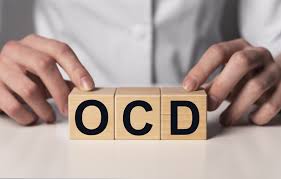Checking is a common obsession in people with OCD, most of which are unaware they have it. Checking is the persistent and intrusive compulsion to check something over and over again to make sure it’s safe or nothing bad can happen. Common checking behaviors include locking doors, making sure appliances are unplugged, or double-checking to make sure the stove was turned off. If you believe that you or a loved one may be struggling with checking obsessions, then this article is for you. Below, we’ll discuss the various forms of treatment available for this condition as well as some tips on how to manage it on your own. Keep reading to learn more about checking OCD treatment options and how to find the right plan for your unique needs.
Contents
OCD Basics

OCD, or obsessive-compulsive disorder, is a mental health condition that causes sufferers to experience persistent and intrusive thoughts (obsessions) and/or engage in repetitive behaviors (compulsions). Also, OCD can be a debilitating condition that interferes with all aspects of life, including work, school, and personal relationships.
There is no single cause of OCD, but it is believed to involve a combination of genetic and environmental factors. OCD is often treated with a combination of medication and cognitive-behavioral therapy (CBT).
There are many different types of OCD, and each person uniquely experiences the condition. Some common themes include:
- Checking: repetitively checking doors, locks, appliances, or other objects to make sure they are safe or functioning properly
- Contamination: fear of dirt, germs, or other contaminants; may lead to excessive hand-washing, cleaning, or avoidance of certain objects or situations
- Hoarding: difficulty throwing away or parting with possessions; may cause severe clutter in the home
- Rumination: obsessively thinking about a problem or situation; may lead to negative emotions such as anxiety or depression
- Symmetry/orderliness: need for things to be arranged in a precise, orderly fashion; may result in excessive tidying or organizing
If you have OCD, you may experience one or more of these themes. Your symptoms may be mild or severe and can fluctuate over time. Treatment for OCD can help lessen your symptoms and improve your quality of life.
Checking OCD Treatment Methods
There are many different ways to treat Checking OCD and the right method for each person may vary. Some people may find that a certain type of therapy is particularly helpful, while others may respond better to medication. It is important to work with a professional who understands OCD and can help you find the right treatment method for you.
Some of the treatment methods are:
Medications

Many different types of medications can be used to treat OCD. Some of the most common include:
- Selective serotonin reuptake inhibitors (SSRIs): SSRIs are the most commonly prescribed type of medication for OCD. They work by increasing levels of serotonin in the brain, which can help to reduce OCD symptoms.
- Tricyclic antidepressants (TCAs): TCAs are another type of medication that can be used to treat OCD. They work by affecting both serotonin and norepinephrine levels in the brain, which can help to reduce OCD symptoms.
- Monoamine oxidase inhibitors (MAOIs): MAOIs are a less commonly prescribed type of medication for OCD. They work by inhibiting the activity of an enzyme that breaks down serotonin and other neurotransmitters in the brain. This can help to increase levels of these neurotransmitters, which can reduce OCD symptoms.
Therapy
There are many different types of therapy available for people with OCD. Some people may benefit from one type of therapy, while others may need a combination of different therapies. The most common types of therapy used to treat OCD are:
- Cognitive behavioral therapy is a type of therapy that helps to change the way you think about things. It can help you to better understand your thoughts and feelings, and how they affect your behavior. CBT can also help you to learn new ways of dealing with stressful situations.
- Exposure and response prevention is a type of therapy that helps you to face your fears head-on. This type of therapy will expose you to the things that trigger your OCD while teaching you how to control your anxiety and prevent yourself from engaging in compulsive behaviors.
Support Groups
There are many types of OCD support groups available. Some are online, while others are in-person. Many OCD support groups focus on helping people with OCD to learn about and manage their condition. They also provide a space for people to share their experiences and connect with others who understand what they are going through.
OCD support groups can be a great resource for people who are seeking treatment for OCD. They can provide information and support that can help manage the condition. In addition, they can offer a sense of community and connection for people with OCD.
Conclusion
Checking OCD is a difficult disorder to manage, but with the right treatment plan, it can be managed. The three types of treatment methods discussed here have all been proven effective in treating Checking OCD and can be used in combination or separately depending on your individual needs. With the right help, you will be able to better control your compulsive behaviors and live a happier life free from Checking OCD.
The key to successfully managing this condition is finding the right combination of treatments for you. It is important to remember that treatment can take time and patience, but with persistence, it is possible to effectively manage Checking OCD.
For more information and guidance, please contact MantraCare. OCD is a mental health disorder characterized by obsessions and compulsions. If you have any queries regarding Online OCD Counseling experienced therapists at MantraCare can help: Book a trial OCD therapy session


